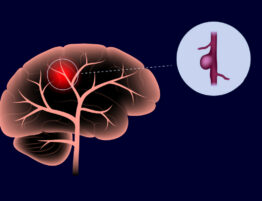A variety of reasons can cause frequent numbness in the arms and legs. Typically, the characteristic burning sensation appears in people who lead a sedentary lifestyle. The constant pressure on the nerves and blood vessels in the legs causes the appearance of “ants”, which disappear when you change position. However, numbness in the limbs can also be one of the symptoms of the disease. When numbness in your limbs is accompanied by mobility problems, a feast of confusion, difficulty speaking, and a severe headache, seek medical attention immediately. These symptoms may indicate a stroke or subarachnoid bleeding.
The human body is connected by a network of nerves and blood vessels that the body uses to communicate. Muscle tension, injuries, spinal injuries, stress, and pressure on peripheral nerves are several factors that can disrupt communication, causing symptoms such as numb and tingling arms and legs. These ailments can overwhelm everyday functioning and performing basic activities. They are a natural alarm that our body has been disturbed, and it is worth consulting a specialist.
Although everyone complains of numbness in the arms and legs, constant, frequent, or highly severe numbness is not normal. Find out what may be causing the numbness of your arms, legs, and fingers. Why do the limbs go numb more often? Find out what can be done to reduce the numbness.
Numbness of the extremities: neurological diseases
Some neurological diseases, even those as severe as stroke, brain tumor, and intracranial hemorrhage, conditions that require immediate medical attention, are responsible for numbness in the limbs.
Nocturnal hand numbness can also be associated with brain conditions. A common cause of hand numbness in the morning is systemic lupus erythematosus (SLE). Changes of a neurological nature can also be a significant cause of numbness in the arms and legs. It is mainly about:
- multiple sclerosis,
- epilepsy,
- paresthesia,
- neurosis,
- neuropathy (drug, alcoholic, diabetic) – damage,
- nerves cause numbness in the arms and legs.
Experiencing numb legs and an impaired sensation may also indicate Guillain-Barre Syndrome (GBS). It is an acquired autoimmune disease of the peripheral nerves. The most common causes of its appearance are viral (EBV, influenza virus, CMV) or bacterial infections.
The symptom may also be accompanied by pain and swelling in the joints, leading to the suspicion of rheumatoid arthritis.
Systemic lupus erythematosus is a disease that is manifested, among others, by numbness of the limbs, headaches, convulsions, and skin lesions.
An alarming symptom is burning in the right arm, right leg, and corner of the mouth on one side of the body. It is one of the usual harbingers of a stroke.
If your limb numbness is accompanied by a strange taste or drooling feeling and seeing sparks or lights, this condition may indicate you are having an epilepsy attack.
Limb numbness: other causes
There is probably no person who does not complain of numbness in an arm or leg from time to time. Numbness may be a symptom of a very minor or severe condition. Usually, numbness occurs when a limb has been in one position for too long, which is common during sleep. What else could there be?
- Deficiency of vitamins and minerals
However, you should not immediately link limb numbness with serious diseases. It should be remembered that in such situations, this symptom does not occur on its own.
In most cases, limb burning sensation is related to an unhealthy lifestyle and poor diet. A tingling sensation in your extremities may be due to a lack of magnesium, B vitamins, or calcium. It is then accompanied by other symptoms, such as muscle tremors and painful cramps.
- A sedentary lifestyle
Lack of exercise is a shared domain of people who work at a desk daily. A sedentary or standing lifestyle is not conducive to assuming the correct position. On the contrary, we often stand and sit in the wrong place, which strains the spine. If this is combined with a lack of physical activity in your spare time, your limb may numb over time. The solution is an active lifestyle and learning to sit correctly at the desk, take frequent breaks, and stretch.
- Diseases of the spine
Limb numbness is a common symptom of back problems, especially when it recurs frequently. It may be caused by degenerative changes in the spine, postural defects, and inadequate posture during sleep and work. Frequent numbness of the hands usually indicates problems in the cervical section, and numbness of the legs indicates issues in the lumbar or sacral spine.
- Numbness of limbs and circulatory system
The feeling of burning in the arms and legs is in some cases associated with a restricted blood supply to the extremities. In such a situation, this symptom indicates problems with the circulatory system.
Urgent consultation with a doctor is required for numbness of the left hand, accompanied by pain in the chest. These are the first symptoms of a heart attack, and you must not underestimate them.
- Other diseases
Endocrine diseases can cause frequent numbness. However, two numb fingers may be a symptom of elbow degeneration or diabetes and may also result from drug therapy, especially oncological treatment. Hand numbness sometimes accompanies a migraine.
Numbness and tingling are common in people suffering from carpal tunnel syndrome, osteoarthritis, and rheumatoid arthritis. Numbness can also be a signal of intoxication in the body.
How to Treat Hand Numbness?
Hand numbness medications don’t work universally. There isn’t one medicine that can help with the tingling sensation or if your hands are numb. Appropriate treatment can only begin once the underlying cause of the numbness in the extremities has been established. It should be remembered that the numbness of the right hand or numbness of the arms and legs at night are usually only indirect symptoms of another, often more severe, disease. A completely different treatment is required for ALS, neurological changes, or degeneration of the limbs. Rehabilitation, thanks to well-chosen and adequately carried out activities, can reduce or even eliminate the feeling of burning and tingling. Thanks to the balance of muscle tone, improvement of blood supply, root drainage, tissue mobilization, and muscle stabilization, it is possible.
When to call for help? When the numbness is so severe that a person loses control of their sphincters, has difficulty moving, weakness in parts of the body, feelings of confusion and speech difficulties, and an extremely severe headache. These types of symptoms indicate a stroke or brain tumor. If the numbness is accompanied by pain behind the sternum, this could signal a heart attack.
The arms or legs numb with finger tingling in many cases results from being in a sitting position for too long. Unfortunately, there are times when numbness in an arm or leg is a signal of a severe medical condition developing in the body. The numbness of the arms and legs is related to, among others, carpal tunnel syndrome and even bone cancer.












Please, leave your review
Write a comment: